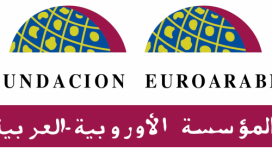Experimental Lab to Foster Youth resilience to radicalisation and violent extremism (the Netherlands)
Polarization is both a mental construct and a multidimensional phenomenon generated by the inability of multi-variable social actors to properly address sensitive issues in the public space like those motivated by cultural, economic and political discourses, narratives within the current migration context, hate speech (off and online), radicalization, violence or crime among others. This complex disruptive phenomenon may be produced by a large variety of social actors, like social-sub groups (minorities, communities, excluded entities), political activists opposing the governing institutions, or even public institutions and mainstreaming parties, which react irrationally and in a disproportionate matter to provocations or legitimate grievances. The final result of an improper management of these dialectics may be the disruption of the socio-political cohesion within the social fabric.
This lab targets the internalisation and further replication of practical, hand-on strategies and personal skills of conflict resolution, peace building, critical thinking, anger management, proportionate response. The hands on strategies and skills taught within lab will address both risk factors for violent and anti-social behaviour, as well as protective factors in the sphere of:
1. social competence (responsiveness to other, conceptual and intellectual flexibility, caring for others, good communication skills, sense of humour)
2. problem solving (ability to apply abstract thinking, ability to engage in reflective thought, critical reasoning skills, ability to develop alternative solutions in frustrating situations)
3. emotional competence and autonomy building (positive sense of independence, emerging feelings of efficacy, high self-esteem, impulse control, planning and goal setting, belief in the future)
4. mediation and negotiation (group problem solving and consensus, base groups, stop and think before acting to bullying)
Participants can experience alternative ways of responding to push and pull factors of social polarisation and extremism as well as various strategies and techniques of replicating skills within the community. The aims are:
(1) to make participants listen to the messages transmitted from across the spectrum of practitioners and individuals involved in preventing social polarisation and violent extremism
(2) to provide practitioners with a better understanding of risk factors in the community, family, school, as well as in peer-to-peer communication
(3) to teach them how to respond in concrete situations and equip them with a first aid emergency toolkit containing smart solutions – e.g. resolving conflicts in principled ways, thus fostering relationships and facilitating bonding between potentially adverse individuals, teaching youth how to control behaviour by making choices which satisfy their needs, offering opportunities to resolve conflicts peacefully etc.
Location
| Topics | |
| Languages | Dutch |
| Evaluation | Final exam |
| Target Audience | |
| Methods | |
| No of Participants | |
| Accreditation | |
| Certificate |
If you have any questions about this course, please get in touch.
In order to send a message, please click on this button. Get in contact

